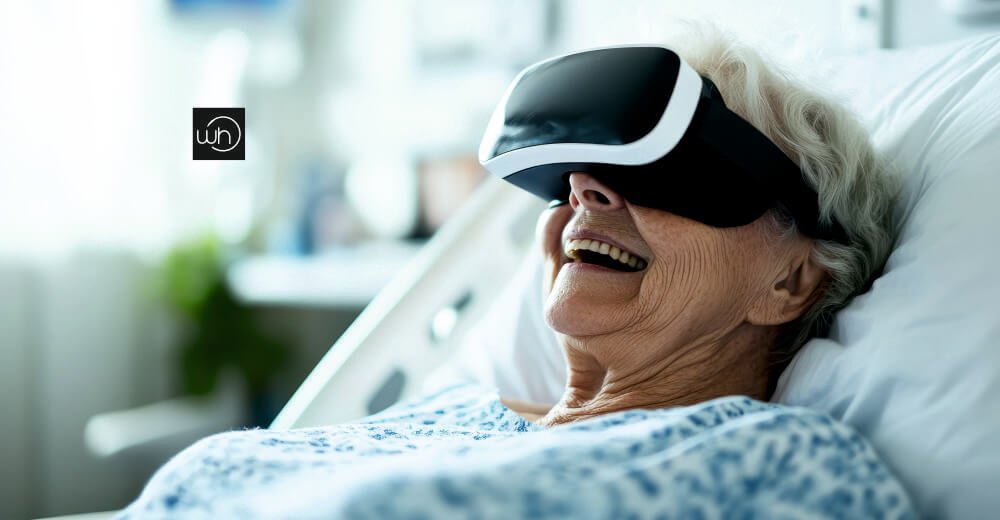In the new era of information technology, health empowerment has emerged as a revolutionizing force that is transforming how individuals take care of their health. It is the process by which people acquire greater control over their health outcomes and choices through the use of information, tools, and support systems. Empowered by technology, this revolution is producing an active wellness movement, which is allowing individuals to live healthier and more productive lives. From wearable technology to telemedicine platforms, digital technologies are empowering healthcare, bridging gaps, and allowing people to take control of their physical and mental health.
The Transformation of Health Empowerment
Before the digital revolution medical practices followed a top-down structure which gave medical experts full control over expertise decisions. Patients in the past received minimal information about their health conditions so they needed to depend on doctors for medical guidance. This historical dynamic became disrupted by the digital era developments. Health-related data is widely available through the internet which includes both scholarly research along with social community interactions. Unprecedented agency became possible for people thanks to modern technology even though inaccurate findings exist on the internet.
Digital Tools Facilitating Empowerment
Digital health tools transformed everything after their widespread adoption. Fitness trackers together with Apple Watches monitor users’ heart rates along with their movements and stress levels continuously in real-time. Users receive active recommendations from these digital devices which direct them toward changing their behaviors for additional movement or mindfulness practices. Patients who have diabetes can monitor their glucose levels through smartphone-connected continuous monitors to receive ongoing data and reduce their necessity for frequent doctor appointments and manage their disease more effectively.
Telehealth functions as one of multiple health empowerment foundations. Online doctor appointments enable healthcare access to patients living far from healthcare facilities and those facing physical limitations. Telehealth adoption rates rose throughout the COVID-19 pandemic because it proved useful for delivering prompt healthcare services. Telehealth enables patient empowerment through its adaptable design along with its ability to reduce all types of obstacles preventing access to healthcare help.
Digital innovation has made a positive impact on mental health care. The platforms Headspace and BetterHelp provide users with guided meditation together with cognitive behavioral therapy activities while connecting them to licensed therapists. Through these resources users gain better understanding of mental health services and they can obtain support through private means. The Mighty alongside Reddit maintain specialized forums that support users through mutual sharing of coping experiences. Emotional resilience forms an essential part of integral well-being because it requires this sense of connection with others.
The Role of Data in Personalization
Data is the basis of health empowerment in the digital age. By gathering and translating individual health information, digital technologies deliver tailored interventions. For example, fitness applications utilize data to recommend exercise that is suitable for an individual’s level of fitness and goals. Food applications like MyFitnessPal translate diet into healthy meal planning. Personalization increases accountability and helps individuals adopt sustainable lifestyle changes.
Artificial intelligence (AI) takes personalization to new heights. AI-driven platforms, such as for precision medicine, scan genetic and lifestyle data to predict health danger and recommend precautions. For instance, companies such as 23andMe provide genetic data allowing individuals to realize their weaknesses and take constructive measures, such as altering diets or screening for certain diseases. Despite the advancements presenting challenges on privacy, they also look at the potential of data empowerment if it is used ethically.
Challenges and Responsibilities
Despite its promise, health empowerment in the digital age comes with challenges. Information overload can overwhelm users, and misinformation—such as unverified health claims on social media—poses risks. Digital literacy is essential to navigate this landscape effectively. Individuals must learn to discern credible sources, cross-check information, and consult professionals when needed.
Privacy is a further issue. Wearables and health apps capture sensitive information, leaving the security and consent issues behind. News of big-name data breaches has highlighted the need for stringent protection. Users need to be careful and choose sites with good privacy policies and secure encryption.
Equity is also an obstacle. Although digital technologies are ubiquitous, not everybody has access to smartphones, stable internet, or the resources to invest in wearables. Closing this digital divide is necessary to make health empowerment reach everyone, rather than the privileged few.
Empowering Communities for Better Living
Health empowerment reaches not just individuals, but also groups. Online systems enable group action, such as online fitness contests or crowdfunding of medical bills. Social media awareness campaigns promote sensitivity about conditions like cancer screening or immunization campaigns, prompting extensive participation. The collective action enlarges the ripple effect of health empowerment, raising public health responses.
The Path Forward
For optimum health empowerment gains, stakeholders should work together. Governments and institutions should invest in digital infrastructure for equal access. Healthcare providers should incorporate digital tools into care plans, advising patients on their utilization. Developers need to prioritize designs that are user-friendly and ethically oriented around data in order to gain people’s trust. Health empowerment in the age of digital transformation is changing better living for individuals all over the world. With the force of technology, individuals gain the information, skills, and self-assurance to manage their own health.
Read More – Click Here





